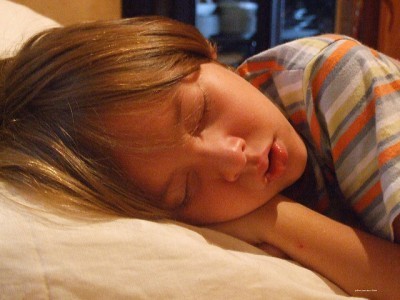How To Cure Frequent Bed Wetting
Follow Us On Facebook:
Categories

Many children go through the stage of wetting their bed at night, but for some it's a longer problem than others. You can try having them use the restroom before bedtime every night or putting them in pull-ups before bed, but neither of these actually help the child train their bodies not to wet the bed. In this article you will find the solution that will fix it all!
Nocturnal enuresis, the medical term for nighttime bed-wetting, is actually more common among school-age kids than you might think. While many children are able to hold their urine all night by age 5, up to one in eight first- and second-graders are still dealing with this embarrassing condition, says Howard Bennett, M.D., author of Waking Up Dry. The percentage drops steadily as children get older (thank goodness), but 1 in 20 10-year-olds still wets at night and an unfortunate 1 to 2 percent struggle with the problem until age 15.
For most kids, the problem is neurological. The child's brain isn't sending signals to his bladder to hold his urine while he's sleeping. “It reflexively empties while he's asleep, just as it did when he was a baby,” says Dr. Bennett. Occasionally, sudden-onset wetting can be psychological, triggered by upheaval, like a move, a new baby or a divorce.
But despite how common bed-wetting is, even parents tend to keep the problem under the covers. Once these big kids are past what is normally the diaper stage (by around age 4), bathroom issues are no longer prime-time conversation among mom friends. For one thing, you may feel like you've flunked Parental Potty Training 101. Plus, who wants to hear others' criticism (“You're too easy on her! Take away those Pull-Ups!”) or naive advice (“Just have her pee before bedtime”)? News flash: For most bed-wetters, neither of those things works.
Because bed-wetting is primarily neurological, punishing or shaming a child won't help and can actually make the treatment process take longer. Instead, a good place to start is to simply explain to your child what's happening to his body, says Lawrence Balter, Ph.D., a psychologist in New York City.
You can say something like this, suggests Balter: “When you sleep, your brain can't control your bladder. It's not something you do on purpose or because you're babyish. Eventually, as you get a little older, you won't wet the bed.”
Getting Kids Dry
The first step is pretty simple: Doctors have patients follow basic techniques like eliminating caffeine from their diets and limiting fluids at night. Those things help, for sure, but the general consensus is that a bed alarm is the number one way to keep kids dry. An alarm usually costs $100 or less and is readily available online and at some medical-supply stores. The best ones include both an audible tone and a vibrating sensor.
How they work: your child wears a very sensitive wetness sensor in his underwear. The sensor connects to the alarm, which goes off when the child pees, waking him. Although your child has already wet the bed, over time the alarm trains his brain to wake earlier and earlier. Eventually, his brain will wake him up at the first drop so he can stop the flow; and then, before any pee escapes. This process can take up to two months, though, so it's not something to try a few nights before a sleepover.
If you try the alarm, you'll be pretty involved in the process; you'll need to sleep in your child's room or set up a baby monitor for a week or so to you hear the alarm.
Read the entire article here: Teri Cettina
Image Source: Gilberto Santa Rosa

 July 27, 2014
July 27, 2014 










No comments yet... Be the first to leave a reply!